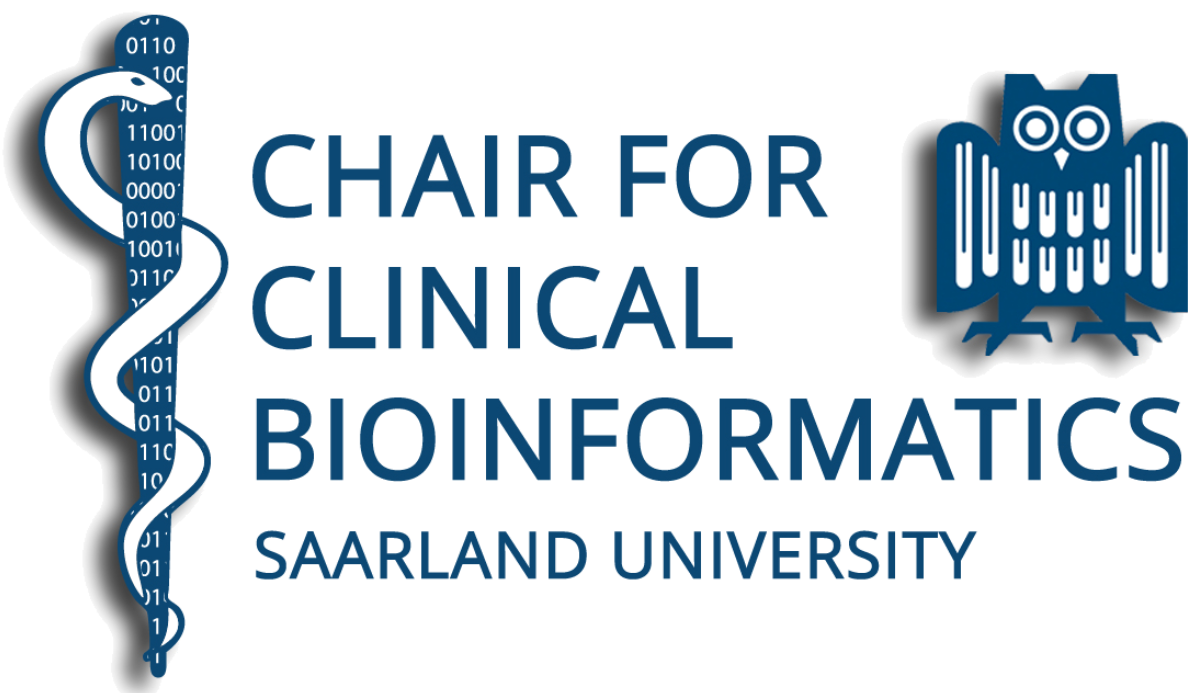This is a block Pro-/Seminar for Bioinformatics and Computer science students.
Overview (Bioinformatics): Single-cell studies are among the very rising topics of the last few years and will strongly shape future developments of bioinformatic methods. Applying transcriptomics to measure the dynamics of gene-expression under various conditions, on the other side, is already well-established in the scientific literature, and currently experiences another up-surge due to high-throughput single-cell sequencing. In the course of this seminar, we will cover the basics of the different single-cell RNA-seq techniques and swiftly move on to advanced bioinformatics methods that help to understand the sparse single-cell datasets. To this end, we will have a look at the diverse steps of data quality assurance and technical and / or biological bias detection methods, which are necessary to implement effective single-cell RNA analysis pipelines.
Overview (Computer science): Inferring causal (biological) relationships from noisy experimental large-scale data such as single-cell high-throughput sequencing is an on-going challenge. The question is simple: What caused the data to look like we observed it? A concise differentiation between (gene) correlation and technical bias, actual function, and eventually causation is therefore crucial. Effective, i.e. efficient and accurate computational methods promise to deliver an explanation of the underlying perturbations as observed in many phenotype disorders, such as high-mortality diseases like cancer or neurodegenerative diseases such as Alzheimer’s. In the course of this seminar, we will review recent methods and implementations addressing these challenges, while putting an emphasize on the methodological intricacies. Ideal candidates should be highly motivated to gain new knowledge and bring along good skills in maths (linear algebra / statistics), algorithms and data structures, and data analysis.
News: The topics have all been assigned and LSF-registration period is over.
The Pro-/Seminar was extended to be open to students from the Computer Science department as well. Prospective candidates from CS should contact the tutor immediately via e-mail and list the following details: Name, matriculation number, the number of semesters studied, if a pro-seminar or a seminar is desired, whether you are a bachelor or a master student, and a short statement on how you think you fulfill the requirements for the seminar.
Depending on the current pandemic situation, for the dates listed below, we will most likely have remote meetings via online zoom or Microsoft Teams conferences instead of personal meetings.
Tutor: M.Sc. Fabian Kern
Key dates:
| Registration * | 04.05.2020-11.05.2020: REGISTER HERE |
| Kick-off meeting [mandatory] | 08.06.2020, 14:00 remotely via zoom – slides |
| Deadline to register in HISPOS OR de-register from seminar * | 29.06.2020 (3 weeks after the kick-off meeting) |
| Deadline for feedback ** [optional] | 14.09.2020 (2 weeks before the presentations) |
| Presentations | 28.09.2020 remotely via Microsoft Teams |
| Summary submission deadline | 05.10.2020 (1 week after the presentations) |
* If you want to deregister from the seminar, please send the tutor an email irrespectively whether you (de)registered in HISPOS or not.
** If you would like to get feedback about your slides, e.g. to improve your presentation before the talk, send your slides to the tutor before the feedback deadline. We strongly encourage you to take this opportunity. When asking for feedback the more complete the submitted presentation the more helpful our feedback can be. Thus, try to avoid submitting half-finished slides. Feedback will be provided at least once but at most twice per participant. Also, before sending in the slides, check out our support materials (presentation guidelines, presentation guidelines checklist). You must hand-in a (digital) copy of the completed guidelines checklist at latest when performing the presentation.
Please note: Your slides will make up a substantial part of the final grade. Reading and paying attention to the provided presentation guidelines will help you to get an impression of which aspects are relevant for the evaluation. Disregarding many of the points listed in the guidelines may negatively affect your grade.
Place and Time for Presentations:
- E2.1 (CBI), room 206 OR remote (Microsoft Teams), at 10 am.
Requirements for participation (Bioinformatics):
- Proseminar: at least in 3rd semester, Bioinformatics I
- Seminar: no pre-requisites.
Requirements for participation (Computer science):
- Proseminar: at least in 3rd semester, lecture on algorithms and data structures
- Seminar: no pre-requisites.
Good language skills are presumed as all talks will be held in english language.
Certificate requirements:
- Successful presentation:
- Talk: 30 minutes for a Pro-seminar and 40 minutes for a Seminar
- Discussion: 5 minutes during which you should be able to answer questions from the tutor(s)/audience
- Attendance to all presentations is mandatory
- Submitting a summary (may have an impact on the final grade):
- Short description of the presented topic(s)
- Ca. 2 pages of text, excluding title (page), references, figures, tables etc..
- No figures, tables or formulas required
- Main structure: title page, main text (with or without subsections), references
- It is recommended to write the report using LaTeX in order to train scientific writing
Final grade:
- Primarily based on the given presentation & follow-up discussion
- Might be influenced by the quality of the submitted summary report
Topics
All manuscript files are either open-access or available via the university network using a secure VPN connection.
Recommended readings
Students who either have a shallow understanding on the topic and / or want to prepare for the course should consider reading the following papers:
- Eleven grand challenges in single-cell data science
- Current best practices in single‐cell RNA‐seq analysis: a tutorial
- Single-cell RNA sequencing technologies and bioinformatics pipelines
- The promise of single-cell sequencing
- Single-cell sequencing-based technologies will revolutionize whole-organism science
- A practical guide to single-cell RNA-sequencing for biomedical research and clinical applications
- Integrative single-cell analysis
